A passion for food
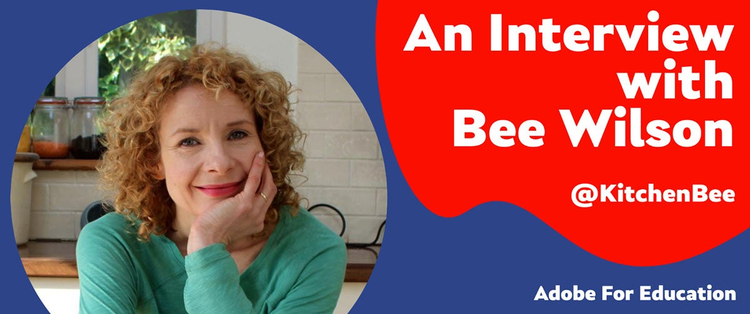
We’re at a unique moment in history when we can look at education from a different vantage point with school closures forcing us to re-evaluate what education means and where it is going.
I set about interviewing some of education’s most interesting people in researching my book, Literacy Beyond The Classroom, in order to get deeper insights on how we might rethink education.
Bee Wilson is a food writer and historian. Her books include Consider the Fork: A History of How We Cook and Eat and, most recently, First Bite: How We Learn to Eat (Fourth Estate) which won the Fortnums Food Book of the Year 2016.
I spoke with her about the importance of education in helping children develop good lifelong nutrition habits. This is especially important when we consider that, right now in the UK, 1 in 5 kids leave primary school obese. As it turns out, school is a great place to expand exposure to healthy eating and lasting dietary health and well-being.
Why are you passionate about food education?
Eating is not something we are born knowing how to do, like breathing. Our preferences for certain foods are something we learn and sometimes have to unlearn. The sad thing in today’s world is that the main educator of a child’s palate is the food industry which has encouraged a generation of children to gravitate towards foods that are sweet, fatty, salty and ultra-processed.
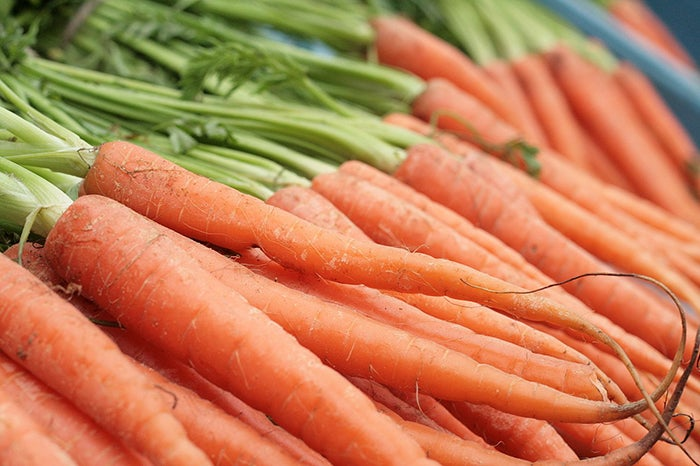
We need to redress the balance and make a child see the joys in other flavours and textures, from the bitterness of grapefruit to the hard crunch of a carrot.
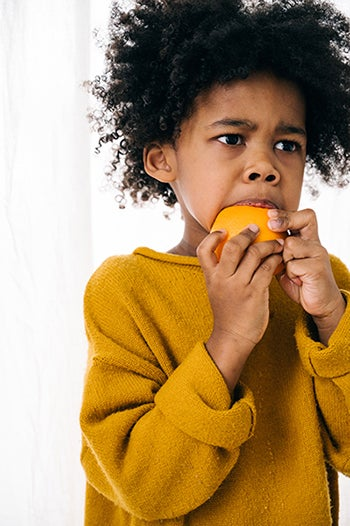
When I was researching my book First Bite: How We Learn to Eat, I came across a study from Turkey that stopped me in my tracks. It suggested that the single greatest predictor of the way a person eats aged 20 – from whether they are picky to whether they enjoy vegetables – is the way that he or she ate at the age of 2. This really brought home to me that so many of our attitudes to food are set at a very early age. School is a very rare and powerful opportunity in a person’s life when whatever preferences they have learned at home can be circumvented and it is possible for a person to discover tastes they never knew they had.
Another reason I am passionate about food education is that I feel the way we feed our children is one of the tests by which society should be judged. If we take public health seriously, we have to be interested in food education because it is a chance to change the health of whole populations. In a world where poor diet is the single greatest cause of preventable disease, we have to take food education seriously.
Take Japan, which is generally considered to eat an outstandingly healthy diet by the standards of modern affluent nations. What we think of as ‘Japanese’ food partly came about because of the postwar Japanese programme of school lunches which exposed a generation of Japanese children to wider tastes. These early experiences are likely to form a person’s relationship with food for the rest of their lives.
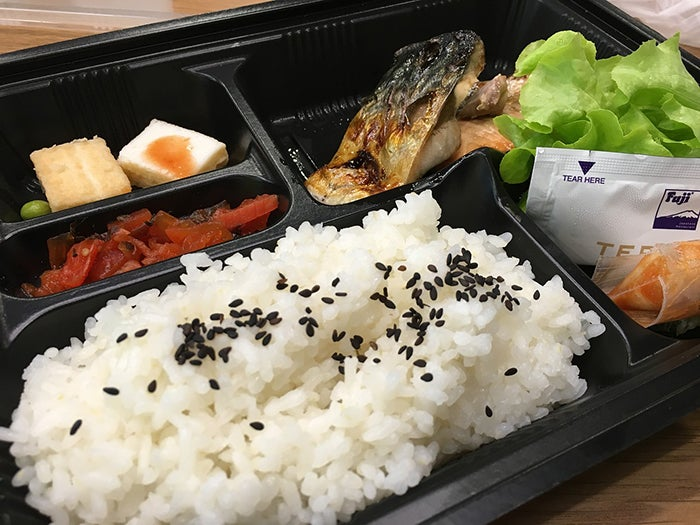
What has changed, if at all, to make food such an important topic these days?
Food has always been an important topic, it’s just that general opinion is finally starting to catch up. When I started out as a food writer 20 years ago, I endlessly had people telling me that what I was doing was trivial. But I remember working a reception class in Cambridge and we were talking about loud and quiet foods – crunchy and soft. One boy said to me, ‘I can’t eat crunchy foods’. I was surprised and asked why. He opened his mouth and his teeth were blackened stumps. I felt so sorry that at the age of 5 his food choices were already limited by the fact that he had consumed a sugary diet. Poor diets are causing huge amounts of completely preventable human suffering, and it’s not right… I don’t get those trivial comments so much any more. I think we are all starting to recognise that food is political, and that the food we eat has huge ramifications both for our own health and for the world we live in.
How do we get real, sustainable food to be as desirable as junk food?
This is a question I think about a lot. It’s perfectly possible for a person to grow up and desire a bowl of deep orange pumpkin soup or a platter of delicious Asian greens wok-fried with soy sauce and garlic, but the problem is that our culture still speaks of vegetables as a kind of punishment, and we have a whole system of celebration in the UK centred around sugar (think of The Great British BakeOff). Something that headteacher Jason O’rourke has done at his school, Washingborough Academy, is to say that when a child has a birthday, they celebrate by donating a book to the school library instead of bringing in sugary treats. I think this is a brilliant idea because the children will start to associate books with good times.
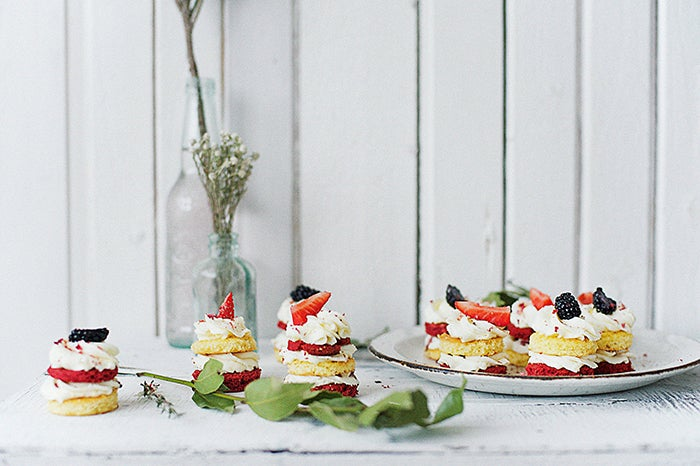
We tend to focus far too much on the mouth and what a child puts in his or her mouth. By allowing them to explore food with the other senses, it takes the pressure off and a child is able to use his or her natural curiosity to get to
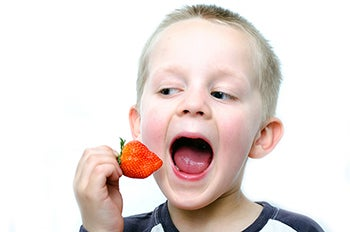
What effect would good food education have on wider society?
Food education will not be enough by itself. Obesity and diet-related ill health are hugely multi-factorial. To address them across society at large will take many different interventions at once from changing the environment in which we shop to changing the way we talk about vegetables. But the thing that really excites me about food education is that by learning about his or her own tastes, a child can also expand horizons in other ways. It is an amazing tool for expanding a person’s vocabulary because we all have something to say about food, this great human universal. Children have made observations I had never noticed before such as ‘sometimes the stalk of the tomato looks like stars’ or ‘the mandarin smells sour but tastes sweet’. Good food education should be nonjudgmental. Far too much food education in the past has left children feeling confused about food and about their own bodies. It is much better to lead them to the joy of healthy food through their own senses.
Since food and nutrition are such important subjects that also touch on ideas of culture and personal perspective, I developed a classroom project using Adobe Spark Video called Kitchen Kid. This sequence of lessons teaches kids about nutrition and healthy eating with the aim of writing, filming and editing an engaging and fun cooking video.
This project can be easily linked to concepts of literacy, art, history, science and mathematics for a cross-curricular experience. Educators can meaningfully and memorably use food discovery as a broader learning tool for all student ages.
To access the Kitchen Kid Lessons, go to https://edex.adobe.com/resource/vc71142cd/
At Adobe, we believe that everyone deserves respect and equal treatment, and we also stand with the Black community against hate, intolerance and racism. We will continue to support, elevate, and amplify diverse voices through our community of employees, creatives, customers and partners. We believe Adobe has a responsibility to drive change and ensure that every individual feels a sense of belonging and inclusion. We must stand up and speak out against racial inequality and injustice. Read more about the actions we’re taking to make lasting change inside and outside of our company.
We also know many people are still impacted by the current COVID-19 crisis and our thoughts are with you. The entire Adobe team wants to thank you, our customers, and all creators around the world for the work you do to keep us inspired during this difficult time.